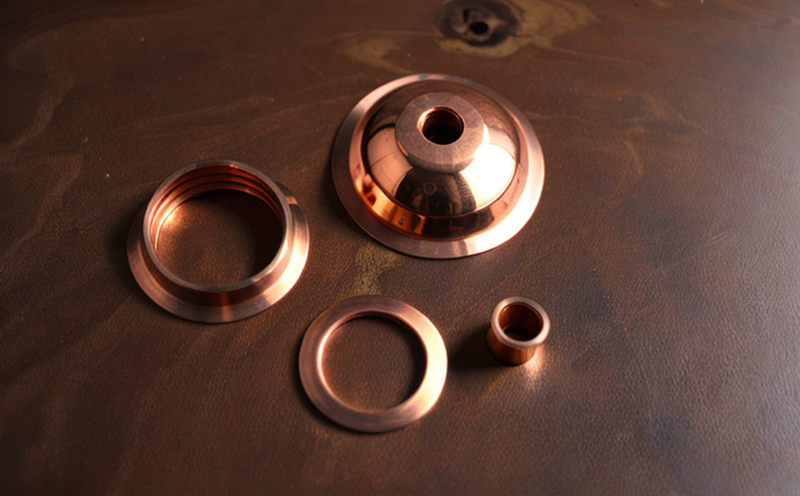MIL-STD-810 Fungus Growth Resistance Testing
The MIL-STD-810 standard provides guidelines and methods for environmental testing of military equipment to ensure its reliability and performance under various conditions. One critical aspect is the fungus growth resistance test, which evaluates how well materials can withstand fungal contamination that could degrade their structural integrity or functionality.
Fungi are prevalent in many environments where military equipment may be deployed, particularly those with high humidity levels such as jungles, rainforests, and coastal regions. Copper and brass materials are especially susceptible to fungus growth due to their favorable conditions for microbial proliferation. The test aims at ensuring that these materials maintain their integrity and performance over time.
The testing process involves exposing copper and brass specimens to controlled fungal growth environments according to MIL-STD-810 specifications. Specimens are placed in a chamber where they are exposed to fungi under specific conditions, such as temperature, humidity, and light exposure. After the test period, the specimens undergo inspection for signs of degradation or damage caused by fungus growth.
This testing is crucial for ensuring that materials used in aerospace and aviation applications meet strict durability requirements set forth by military standards. Compliance with MIL-STD-810 ensures that equipment remains functional under challenging environmental conditions, thus enhancing operational readiness and minimizing maintenance costs.
For quality managers, compliance officers, R&D engineers, and procurement teams responsible for selecting materials for aerospace applications, understanding this testing is vital. It helps in making informed decisions about material selection based on their resistance to fungal growth. This knowledge also aids in the design phase of new products by identifying potential weaknesses early in development.
- Customer Impact: By ensuring that materials used in critical aerospace components have high fungus resistance, customers can expect longer-lasting and more reliable equipment with reduced risk of failure due to environmental factors.
- Satisfaction: Meeting MIL-STD-810 requirements not only satisfies regulatory compliance but also enhances customer trust and satisfaction by delivering products known for their robustness and reliability in demanding environments.
Applied Standards
The test described adheres to MIL-STD-810, which is a comprehensive document that outlines the environmental testing requirements for military equipment. It includes various environmental stresses such as temperature cycling, humidity, vibration, and fungus growth.
In particular, Section 543 of MIL-STD-810 addresses fungus resistance testing. This section specifies the conditions under which materials should be exposed to fungi, including the type of fungi used, incubation periods, and observation intervals. The standard also provides guidelines for preparing specimens before exposure and evaluating results post-test.
By following these standards, laboratories can ensure that their tests are consistent with industry best practices and provide accurate assessments of material performance. This consistency is crucial given the international nature of military procurement, where adherence to global standards ensures interoperability between different equipment platforms.
Eurolab Advantages
At Eurolab, we pride ourselves on providing top-tier environmental testing services that meet or exceed the highest industry standards. Our state-of-the-art facilities and experienced technicians ensure precise control over all test parameters specified in MIL-STD-810.
We employ advanced equipment capable of simulating real-world conditions accurately, allowing us to provide reliable data on material performance under various environmental stresses. This precision is essential for ensuring that our clients receive accurate results that can guide critical decisions regarding material selection and application.
Our commitment extends beyond just meeting standards; we also offer tailored testing solutions to meet specific customer needs. Whether you need comprehensive MIL-STD-810 compliance or specialized tests not covered by the standard, Eurolab is here to assist with expert advice and support throughout the process.





